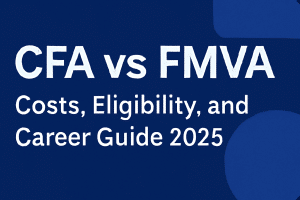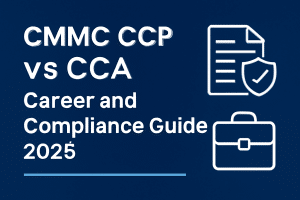Becoming a licensed real estate agent in the United States opens the door to a career that combines independence, uncapped income potential, flexible work hours, and the ability to help people make major life decisions. Although every state regulates real estate licensing independently, the overall process shares a common path. Still, the details — the course hours, exam formats, application fees, and background checks — vary widely from state to state.
This article breaks down the complete licensing journey, then provides state-specific insights for six major exam pathways many students search for:
- Virginia Real Estate Salesperson
- Massachusetts Real Estate Salesperson
- New Jersey Real Estate Salesperson
- Pennsylvania RePA_Sales_S
- North Carolina NCREC Broker
- Maryland Real Estate Salesperson
Whether you are brand new to licensing or researching exam steps for a specific state, this article gives you the clarity you need, written with a practical, student-first approach.
Understanding the U.S. Real Estate Licensing Process
Although state laws differ, most new real estate agents follow a typical sequence from start to finish. Think of it as a roadmap — the details may change, but the direction remains the same.
Step 1 — Meet Basic Eligibility Requirements
Every state sets its own baseline, but nearly all require:
- You must be at least 18 or 19 years old (depending on state).
- You must have a high school diploma or GED.
- You must be a U.S. citizen or legal resident.
- You must pass a criminal background check.
There is no requirement for previous sales experience, college degrees, or business certifications.
Step 2 — Complete State-Approved Pre-Licensing Education
This is the core of your early training. Course hours vary significantly by state:
| State | Required Course Hours | Delivery Options |
| Virginia | 60 hours | In-person, live online, self-paced online |
| Massachusetts | 40 hours | Classroom + online hybrid |
| New Jersey | 75 hours | In-person or synchronous online |
| Pennsylvania | 75 hours | State-approved schools |
| North Carolina | 75 hours | Classroom or live online |
| Maryland | 60 hours | In-person, live virtual |
Courses typically include:
- Real estate law
- Contracts
- Property valuation
- Finance and lending principles
- Ethics and fiduciary duties
- State-specific rules and conduct
Most states allow students to take final course exams online.
Step 3 — Pass the State Licensing Exam
The exam is the biggest hurdle for many students, but with realistic real estate exam practice questions and structured studying, it becomes manageable.
While exam providers differ (PSI, Pearson VUE, or state-run boards), most licensing exams share this format:
| Section | Approx. Questions | Purpose |
| National Portion | 60–80 questions | Tests federal real estate principles |
| State Portion | 30–40 questions | Tests state-specific licensing laws |
You must pass both sections. Some states require retaking only the portion you failed, while others require retaking the entire exam.
Passing scores normally fall between 70–75%.
Step 4 — Submit Fingerprints and Background Check
All states conduct background checks to ensure applicants meet professional standards.
Typical requirements include:
- Digital fingerprints at approved centers
- FBI and state criminal record screening
- 1–4 week processing time
Minor issues do not automatically disqualify you; honesty matters more than perfection.
Step 5 — Apply for Your License
Once you pass the exam, you can apply for your license. Depending on the state:
- Application fees range from $50 to $300
- Some states issue a temporary license immediately
- Others take 1–3 weeks for approval
You will receive either a Real Estate Salesperson license or a Broker provisional license, depending on state terminology.
Step 6 — You Must Choose a Sponsoring Broker
Many beginners overlook this step, but you cannot legally conduct business without a supervising broker.
A good broker provides:
- Training and mentorship
- Contract support
- Marketing resources
- MLS access
- Leadership and accountability
- Client management systems
Commission splits vary:
| Model | Agent Split | Broker Split |
| Traditional | 50–60% | 40–50% |
| High Split | 70–90% | 10–30% |
| Flat Fee | 100% | Monthly fee |
New agents sometimes choose supportive brokerages over higher splits — training is often more valuable than immediate commission.
Step 7 — Build Skills, Systems, and a Local Network
Once licensed, agents must:
- Complete post-licensing education
- Join local and national associations (optional but beneficial)
- Develop marketing strategies (online + offline)
- Use CRM systems
- Understand contract workflows
- Learn market research techniques
This is where real estate becomes a business, not just an exam challenge.
How Long Does It Take to Get a Real Estate License in the USA?
The timeline varies based on state processing and your study pace:
| Stage | Approx. Time |
| Pre-licensing coursework | 1–12 weeks |
| Exam scheduling & prep | 1–4 weeks |
| Background check | 1–4 weeks |
| License approval | 1–3 weeks |
Average total time: 2–6 months.
Highly motivated students sometimes finish in 30–45 days.
State-by-State Licensing Guide (With Exam Insights)
This section covers exactly what you requested — detailed breakdowns of six major state licensing exams.
These are not generic summaries. Each explanation shows exam structure, core topics, and preparation routes.
Virginia Real Estate Salesperson Exam (Virginia-Real-Estate-Salesperson)
Virginia requires new agents to complete a 60-hour pre-licensing course, then pass a PSI-administered licensing exam.
Exam Format
| Portion | Questions | Time |
| National | 80 | 105 minutes |
| Virginia State | 40 | 45 minutes |
You must score at least 70%.
What the Exam Covers
National Portion Topics
- Agency relationships
- Fair housing practices
- Property disclosures
- Contracts
- Financing techniques
- Property valuation
- Real estate math
Virginia-Specific Topics
- State licensing rules
- Disciplinary actions
- Advertising and escrow rules
- Brokerage operations
- Virginia Fair Housing Law
Tips for Passing
- Study 1 hour a day for 2–3 weeks
- Focus heavily on state laws (30% of failures come from this portion)
- Use practice tests that mirror PSI structure
- Review fair housing differences between federal and Virginia rules
Massachusetts Real Estate Salesperson Exam (Massachusetts-Real-Estate-Salesperson)
Massachusetts requires just 40 hours of coursework, making it one of the fastest pathways in the country.
Exam Details
| Portion | Questions |
| General/National | 80 |
| Massachusetts State Law | 40 |
Minimum score: 70%.
Key Exam Subjects
General Topics
- Property ownership
- Encumbrances
- Transfer of property
- Leasing
- Appraisal
- Contracts
Massachusetts-Law Portion
- Consumer protection regulations
- Mandatory agency disclosures
- Escrow handling
- Licensing requirements
- Environmental issues specific to Massachusetts
Tips for Passing
- Spend 4–7 days reviewing Massachusetts consumer protection laws
- Use charts for tracking regulatory differences
- Memorize mandatory disclosures using flashcards
- Work through national math problems daily
New Jersey Real Estate Salesperson Exam (New-Jersey-Real-Estate-Salesperson)
New Jersey requires 75 hours of coursework and emphasizes legal compliance strongly.
Exam Specifications
| Portion | Questions |
| National | 80 |
| New Jersey State | 30 |
Passing score: 70%.
Topics You Must Know
National Subjects
- Contracts
- Agency
- Federal fair housing
- Pricing and appraisal
- Finance
- Ethics
New Jersey State Portion
- NJ Real Estate Commission rules
- Handling trust funds
- License activation rules
- NJ Anti-Discrimination Laws
- Broker-agent relationships
Tips for Success
- Memorize NJ’s specific advertising and record-keeping laws
- Review trust account procedures
- Do 3–5 timed practice exams replicating Pearson VUE format
Pennsylvania Real Estate Salesperson Exam (RePA_Sales_S)
Pennsylvania uses the RePA_Sales_S designation, requiring 75 hours of approved education.
Exam Overview
| Portion | Questions |
| National | 80 |
| Pennsylvania State | 30 |
Score required: 75% (slightly higher than many states).
What’s on the Test
National Section
- Property ownership
- Real estate practice
- Contracts
Pennsylvania Section
- Licensing rules
- Agency disclosure
- Landlord-tenant rules
- Environmental hazards
- PA-specific ethics and conduct
How to Prepare
- Make PA disclosure rules your priority
- Watch summary videos on landlord-tenant laws
- Practice questions on escrow and earnest money
North Carolina Real Estate Broker Exam (NCREC-Broker-N)
North Carolina is unique: all new agents start as provisional brokers, not salespersons.
Exam Structure
| Portion | Questions | Time |
| National | 80 | 120 minutes |
| NC Law | 40 | 90 minutes |
Passing score: 75%.
Content Breakdown
National Portion
- Contracts
- Property management
- Fair housing
- Appraisal fundamentals
- Real estate calculations
NC State Law
- NC Commission rules
- Brokerage compensation
- Dual agency rules
- Working With Real Estate Agents brochure
- Offer and acceptance laws
Tips for the NC Exam
- Focus heavily on NC agency forms
- Know the difference between provisional and full broker responsibilities
- Do at least 100 NC-specific practice questions
Maryland Real Estate Salesperson Exam (Maryland-Real-Estate-Salesperson)
Maryland’s licensing structure is known for being well-organized and beginner friendly.
Exam Details
| Portion | Questions |
| National | 80 |
| Maryland State | 30 |
Passing score: 70%.
Exam Topics
National
- Practice and disclosure
- Property management
- Contracts
- Finance
Maryland Law
- Licensing laws
- Ethics and disciplinary measures
- Fair housing at state level
- Agency relationships
- Real estate commissions
Preparation Tips
- Use memory anchors for key agency obligations
- Review MD-specific complaint and investigation procedures
- Take 4–6 full-length simulated exams
Comparison: Which State Exam Is the Hardest?
Difficulty varies depending on background, but scoring data suggests:
| State Exam | Difficulty Level | Notes |
| North Carolina | High | State law portion is complex |
| New Jersey | Medium-High | Strict compliance rules |
| Pennsylvania | Medium-High | 75% passing requirement |
| Virginia | Medium | Balanced content |
| Maryland | Medium | More straightforward |
| Massachusetts | Medium-Low | Lowest education hours |
North Carolina consistently ranks as one of the toughest for beginners.
How Much Does It Cost to Get a Real Estate License?
Costs vary widely by state:
| Expense | Range |
| Pre-licensing course | $150–$700 |
| Exam fee | $50–$100 |
| Application fee | $50–$300 |
| Fingerprinting | $35–$80 |
| Background check | $25–$75 |
Total estimated cost: $300–$1,200.
Budget-conscious students often use practice exams from trusted platforms like Cert Empire to stay exam-ready while keeping costs manageable.
How to Study Effectively for Any State Real Estate Exam
Passing requires strategy — not just memorization.
Step-By-Step Study Plan
- Read the national principles first
- Create state-specific flashcards
- Use timed practice exams
- Practice real estate math daily
- Study 45–60 minutes per day instead of cramming
- Review incorrect answers thoroughly
- Use local real estate groups to clarify confusing topics
Common Mistakes to Avoid
- Ignoring the state portion
- Not practicing long-form questions
- Leaving math to the end
- Studying only from generic notes
- Not using test-format-aligned resources
What Happens After You Get Your License?
This is where the real journey begins.
Post-Licensing Requirements
Most states require new agents to complete:
- 20–60 hours of post-licensing training
- Continuing education every 1–2 years
Skills New Agents Must Learn
Market Research
Understanding price trends, neighborhood shifts, and buyer behavior.
Prospecting
Lead generation through referrals, open houses, and online marketing.
Contracts and Negotiation
Mastering contingencies, timelines, and closing processes.
Ethics and Professionalism
Real estate carries fiduciary responsibilities and legal obligations.
Career Growth Opportunities After Licensing
Real estate isn’t one job — it’s a field with many paths:
- Residential sales
- Commercial brokerage
- Leasing
- Property management
- Real estate investing
- Referral business
- Brokerage ownership
- Real estate education
- Appraising (requires additional licensing)
Some agents scale quickly; others pursue hybrid paths like investing or flipping homes.
Frequently Asked Questions (FAQ)
How long does it take to get a real estate license in the USA?
Most students finish in 2–6 months, depending on study speed, background checks, and state processing times.
Which state has the easiest real estate exam?
Massachusetts is considered one of the easier pathways due to lower education hours and a straightforward exam.
Can I get licensed in one state and work in another?
Sometimes. Many states have reciprocity agreements, but rules vary. Always check both states’ licensing boards.
How many times can I retake the exam?
Most states allow multiple retakes, though waiting periods and additional fees may apply.
Do I need a sponsoring broker to start working?
Yes. You cannot practice real estate independently until your license is activated under a supervising broker.
Is real estate a good career for beginners?
Yes — the field has low barriers to entry, high earning potential, and flexible work structures.
Conclusion
Getting a real estate license in the United States is straightforward once you understand the steps, state requirements, and exam expectations. While each state follows its own rules, the foundation remains the same: complete education, pass the exam, undergo a background check, choose a broker, and develop strong professional habits. With the right approach, consistent study, and reliable practice materials, you can build a rewarding and long-term career in an industry that rewards effort, market awareness, and communication skills.
Resources
- U.S. Bureau of Labor Statistics – Real Estate Career Outlook: https://www.bls.gov/ooh/sales/real-estate-brokers-and-sales-agents.htm
- National Association of Realtors – Licensing Requirements: https://www.nar.realtor/membership/licensing-for-real-estate-professionals
- PSI Exams / Pearson VUE Real Estate Exams: https://www.pearsonvue.com/us/en/practicetests/realestate.html
- Individual State Real Estate Commission Websites: https://www.nar.realtor/


























